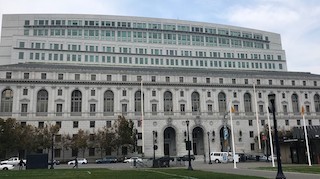Sometimes it can seem that only after a law is passed does one discover its loopholes.
Senate Bill 620 seems to fall into this general truism. This law amended Penal Code § 12022.53(h), which previously prohibited sentencing courts from striking a firearm enhancement found true under the statute, to now “in the interest of justice pursuant to Section 1385 and at the time of sentencing, strike or dismiss an enhancement otherwise required to be imposed by this section.” In other words, either the enhancement applied or it would not, depending on the judge’s discretion. The statute did not state that a judge can lower the enhancement.
Penal Code § 12022.53, however, establishes three sentencing enhancements of varying lengths for the personal use of a firearm during the commission of certain felonies. Subdivision (b) requires a ten-year enhancement for personal use of a firearm during a qualifying offense. Subdivision (c) requires a twenty-year enhancement if the firearm is personally and intentionally discharged. Subdivision (d) requires a twenty-five-to-life enhancement if the firearm is personally and intentionally discharged and proximately causes great bodily injury or death.
In a sense, subdivisions (b) and (c) of section 12022.53 are lesser enhancements of subdivision (d), meaning that a true finding under subdivision (d) amounts to a true finding under the other two subdivisions. People v. Morrison (2019) 34 Cal.App.5th 217, 222.
For any of these enhancements to be imposed, the requisite facts must “be alleged in the accusatory pleading and either admitted by the defendant in open court or found to be true by the trier of fact.” Penal Code § 12022.53(j); People v. Gonzalez (2008) 43 Cal.4th 1118, 1124-1125.
 Court of Appeal First Appellate District San Francisco
Court of Appeal First Appellate District San Francisco
In addition, an enhancement must “be pleaded in connection with every count as to which it is imposed.” People v. Anderson (2020) 9 Cal.5th 946, 956, 957. “If more than one enhancement person is found true under [section 12022.53], the court shall impose upon that person the enhancement that provides the longest term of imprisonment.” Penal Code § 12022.53(f).
The natural question then becomes how does a judge apply SB 620 when multiple levels of enhancements are found true? Can a judge strike the upper-level enhancement and impose a lower-level enhancement?
The case of Eduardo Delavega answered these questions on appeal to the First Appellate District at 2021 DJDAR 640.
Delavega was charged with murder and various enhancements, including three firearm enhancements under Penal Code §§ 12022.53(b), (c) and (d).
His case went to trial. Interestingly, the verdict forms for the jury did not reference the (b) and (c) enhancements, so the jury made no finding as to either of them. The jury did, however, find him guilty of second-degree murder and found true the 12022.53(d) enhancement.
At sentencing, Delavega asked the judge to apply SB620 to strike the (d) enhancement. The trial judge declined to do so and sentenced Delavega to 40 years to life in prison.
Delavega then appealed to the First Appellate District, arguing that the trial court erred because it refused to strike the 12022.53(d) enhancement on the mistaken belief that it could only impose or strike that enhancement, not strike that enhancement and impose a lesser enhancement under (b) or (c).
The First Appellate District began its analysis by noting that the courts of appeal across California disagree about whether a trial court can strike a greater enhancement and impose a lesser enhancement under 12022.53. People v. Morrison, supra, for example, held that the trial court could do so even when the lesser enhancement was not charged separately because it is necessarily true if the jury found the greater enhancement to be true.
The First Appellate District evaluated the reasoning behind Senate Bill 620 and the evidentiary requirements under each of the enhancements under paragraphs (b), (c) and (d) and agreed with Delavega that the trial court was incorrect in its belief that it could not impose a lesser enhancement if it were factually true, so it remanded the case to the trial court with instructions to consider resentencing with this power to impose the lower enhancement.
We bring this summary to the reader’s attention because there seems to be a great deal of confusion about SB 620, mostly about its retroactivity to final sentences, but also about applying it when the sentence is not yet final.
The citation for the First Appellate District Court ruling discussed above is People v. Eduardo Delavega (1st App. Dist., 2021) 59 Cal. App. 5th 1074, 273 Cal. Rptr. 3d 843.
For more information about SB 620, please click on the following articles:
 Court of Appeal First Appellate District San Francisco
Court of Appeal First Appellate District San Francisco